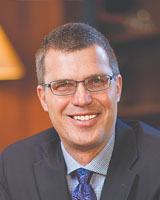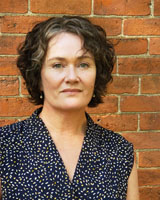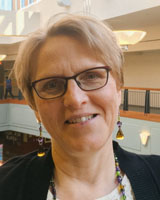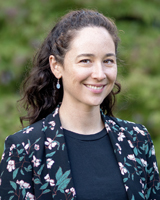UM Rackham Dean Michael Solomon and OAMI’s Christine Wylie testified before the MI Senate Subcommittee on Higher Education and Community Colleges related the state’s King Chavez Parks Scholarship program and specifically student success in relations to the Future Faculty Fellowship Program and the MI Community College & University Partnership program.

Mike Solomon,
Dean and Vice-Provost for Academic Affairs – Graduate Studies, Rackham Graduate School
Mike Solomon
Dean and Vice-Provost for Academic Affairs – Graduate Studies, Rackham Graduate School
Mike Solomon is a Professor of Chemical Engineering and a Professor of Macromolecular Science and Engineering at the University of Michigan. He was previously Dow Corning Assistant Professor of Chemical Engineering and has been a member of the Michigan faculty since 1997. Prior to joining U-M, Dean Solomon was a postdoctoral research fellow at the University of Melbourne, Australia. He received his B.S. in Chemical Engineering and Economics from the University of Wisconsin at Madison in 1990 and his Ph.D. in Chemical Engineering from the University of California at Berkeley in 1996. He was a Rotary Foundation International Fellow in Economics at the Université d’Aix-Marseille II, Aix-en-Provence, France from 1990 to 1991.

Christine Wylie, M.A.,
Assistant Director, Program Manager – Office of Multicultural Initiatives
Christine Wylie, M.A.
Assistant Director, Program Manager – Office of Multicultural Initiatives
Christine has been with the University since 1978 and brings over 25 years of higher education experience to OAMI. She serves as the Michigan-Pursuing Our Dreams (M-POD) transfer Program Manager and Chair of the Student Academic Multicultural Initiatives (SAMI) committee.


 Maria Muzik MD, MSc
Maria Muzik MD, MSc Amy Zaagman
Amy Zaagman Lynette Beiry
Lynette Beiry

